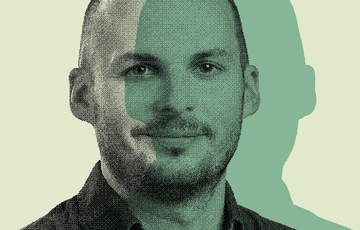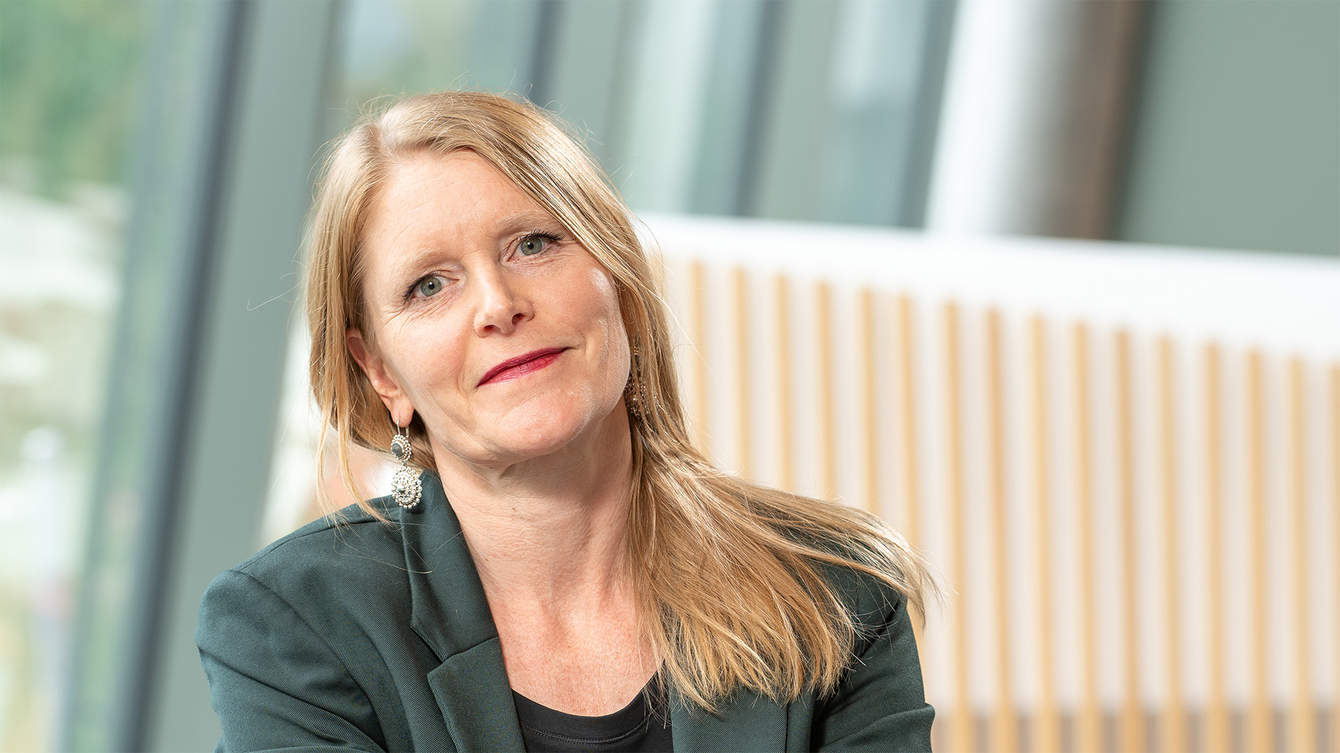
«J’aimerais montrer que la diversité n’est pas une menace»
Publié il y a 4 ans
22.06.2022
Partager

A figure in the fight against cancer, Solange Peters was elected president of the European Society of Medical Oncology (ESMO) in 2020. One of the main missions of this organisation is to improve the quality of care in the cancer field and to ensure equal access to treatments for everyone. At the end of her term at ESMO, In Vivo spoke with the specialist who belongs to the top 1% of researchers whose publications are the most cited in the world. Solange Peters talks about her relationship with her career, with death, which is an integral part of her professional activity and her plans for the future.
IN VIVO Cancer can result from a poor lifestyle or be related to genetic factors. Above all, it is due to bad luck. Is it important to help people feel less guilty?
SOLANGE PETERS Yes, bad luck is at the root of my commitment to medicine, to oncology in particular. It seems obvious to me to do everything to counteract what hits people in an undue, impromptu, brutal, and painful way.
IV “Fighting against cancer”, “defeating it”. A vocabulary of war is often used to talk about it. Can this terminology have an impact on patients?
SP I had never thought about it... As a general rule, I don’t use this type of vocabulary. I talk about “success”, “hope”, “relief”. But maybe patients use it to find more motivation? We would like to be able to control the misfortunes that happen to us. But it is risky to think that you are the only actor, because you also become the sole culprit of your failure, and that is never the case. Ultimately, each person must use the vocabulary specific to the process they are conducting
IV What are the challenges that oncology will face, and more generally, the field of care, in the coming years?
SP We need to rethink our healthcare system. The question of managing the financing of this health system and its sustainability is central today. Only academic research, weakened, remains a sustainable institution model, and we spend millions at the CHUV for these innovations. If the issues of fair costs, reimbursement models and a more rigorous practice of our profession are not prioritised, no society will be able to continue to finance optimal care, not even ours. Innovation is sustainable when it can be personalised. Science must learn to define what each patient specifically needs. This will be the case with immunotherapy. Patients today can already live significantly longer with cancer, benefiting in the long term from a quality of life sometimes close to that of the normal population. I am not convinced that we will be able to cure all cancers, but we can transform them into chronic diseases.
[Translate to Anglais:]
IV And what are your challenges, from a personal point of view?
SP I love my job, I love caring for people, and I couldn’t live without it. I frequently receive proposals to work in the pharmaceutical industry or for large international professional organisations, but right now, I am not ready to move away from patients. I have extensive experience in global health, and I would certainly like to work even more with the WHO. I will also take over the presidency of the Swiss Cancer League. Besides that, and if it makes sense, I see myself returning to politics (Solange Peters sat on the Lausanne Municipal Council in 1996 then was elected leader of the socialist group and on the National Council), possibly at the national level. If I run, I must fully commit first, visit markets on Saturday morning and work hard. I don’t want anyone to think that I am taking advantage of my privileges or my notoriety.
IV You are concluding your presidency at the European Society of Medical Oncology (ESMO). How would you assess this mandate?
SP I was elected after years of international scientific and educational construction within the ESMO. The onset of COVID-19 happened quickly, accompanied by enormous uncertainties in terms of public health. Within a few weeks, we had established around thirty guidelines for the treatment of cancer during the COVID-19 pandemic, which European professionals relied upon. The ESMO members asked me to stay one more year as president, which allowed me to bring about real change. Today, within the governing bodies of ESMO, there are 50% women, and many young, committed and visionary colleagues from all countries. Diversity quotas have been introduced, and membership fees for all members from low-income countries have been permanently abolished. In addition, we have created the International Cancer Foundation, which I chair, whose aim is to support humanitarian projects to fight against cancer.
IV You work in a very competitive and masculine environment. Has pressure always been a driving force?
SP Yes, as a student, I was already president of the Federation of Students. At 20 years old, I was on the Municipal Council of Lausanne. I always had in mind this commitment to equality, equity, and diversity. I was educated in a family of left-wing politicians. We have always welcomed those who needed it at home. I get extremely angry when I feel that a woman is not, by definition, the main interlocutor. It involves small things and repetitive behaviours that I unfortunately witness on a daily basis. The way in which people respond to our interventions, our emails or even when our management prefers to consult the male colleague for an opinion when he is neither the expert nor in charge. These everyday stereotypes that mark a woman’s career make it all the more challenging to climb the ladder. And they cause more than three-quarters of them to give up along the way.
IV At what point in your journey did the choice of oncology become clear?
SP I wear two hats: I’m a biologist and a doctor. As a PhD student, I was working on HIV. When AIDS hit, I saw a number of my friends disappear. It was obvious that I would become an infectious disease specialist. When I started my thesis on the mechanisms of resistance to AIDS virus treatments, people died within a year of the progression of the disease, in very painful conditions. When I finished my thesis, they were able to have children. The disease became chronic. I then went back to field medicine and discovered oncology. There were many links with HIV infection, I am referring to the resistance mechanisms of cancer cells in particular, and the importance of immunity. At the time, it was an area where everything remained to be done: people died of cancer without hope of effective treatment, and research did not offer a solution. After six months, I became convinced, and I have never regretted my choice.
IV You say that there is no discipline where one is closer to people than medicine?
SP Oncology is a special field. At the time of diagnosis, however early it may be, what do we think about first? Death, always. People immediately go back to their core values, to what they now want to prioritise. There is a form of intimacy with the patients that is unique and precious, even if we do not always understand their choices. This proximity is sometimes rough, too, because failure and mourning are realities: more than half of them die of cancer.
IV Your career is far from over. At this stage, what would you like people to remember about Solange Peters?
SP It’s difficult to say. I would like to show that diversity is not a threat but, on the contrary, a wealth. Unfortunately, despite the efforts of the general management, gender discrimination remains widespread at the CHUV. We must work on the real aspects of change; they are necessary so that diversity is no longer an exception but a no-brainer. /
Biographie
Born in Lausanne in 1972, Solange Peters grew up in a family of pharmacology professors who were members of the Socialist Party—a political commitment inherited by their children. She is trained as a biologist and a doctor. Since 2016, she has been Chair of the Department of Medical Oncology at CHUV.


![[Translate to Anglais:] CRÉDIT: Gilles Weber](https://www.invivomagazine.ch/fileadmin/_processed_/1/a/csm_54621_25_DAL_Robot_MAKO_3930_af7417e685.jpg)
![[Translate to Anglais:] IMAGE: iStock](https://www.invivomagazine.ch/fileadmin/_processed_/b/7/csm_iStock-1639456880_01b0ba47c2.jpg)